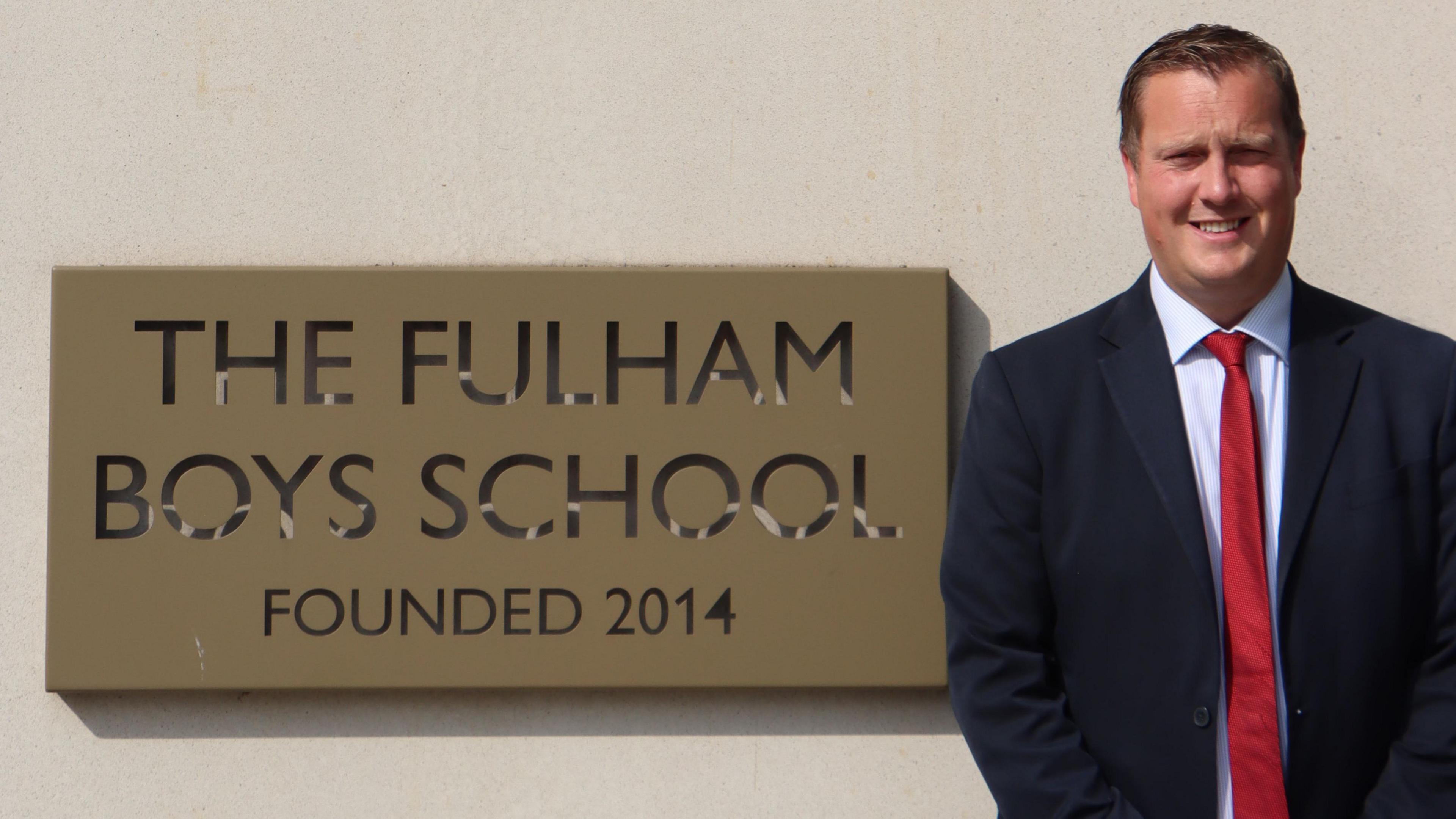London school to swap smartphones for 'bricks'

Head teacher David Smith says there has been a mixed response from parents to the ban
- Published
A west London school has banned smartphones for younger pupils and will only allow basic “brick” phones from the start of term this week.
The Fulham Boys School’s head teacher David Smith said giving smartphones to young children was akin to “choosing to take away their childhood”.
Applying to those in years seven to 11, the move will limit the phones allowed in the school to three “brick” options, which have no access to the internet and only allow texting and calling.
In February, the previous government issued new guidance on smartphones in schools in a bid to help "minimise disruption and improve behaviour in classrooms".
'Zombified'
Before making the decision, Mr Smith ran an anonymous survey among his students to gauge the impact of their smartphone use.
Among his findings were that 97% estimated they received more than 50 notifications and messages a day, and that 38% had no restrictions on their phone use.
The decision to ban smartphones was communicated to parents by letter in May to a mixed response.
Some parents argued that the school was fighting a losing battle, although others have been more enthusiastic, Mr Smith said.
Some younger parents in particular, who have children due to start school, were “really, really happy”, he said, as it removed some of the pressure to buy a smartphone for them.

Years seven to 11 - children aged between 11 and 15 - are affected by the ban
Mr Smith said part of his appeal to parents was to “hold the line”, and not buy smartphones for young children.
If they already have a smartphone, he is urging parents to consider how often their child is using it, and why, and to have an “honest conversation” about this.
Mr Smith referenced concerns around issues such as young people becoming “zombified” by social media algorithms and the "toxic masculinity" characters such as Andrew Tate promote online.
He said: “My strong view is that we educate young people on sex before they are having sex: it’s really important that we educate them before they are engaging in sexual activity. But we are having to educate young people and parents on phones when they already have a phone, and the door is already open."
Secondary school heads urge delay in smartphone use
- Published7 June 2024
Schools given new guidance on stopping phone use
- Published19 February 2024
Mum begins anti-smartphone campaign by mistake
- Published15 February 2024
Mr Smith added: “We are not anti-technology, we’ve identified three brick phones anyway, so we haven’t gotten rid of phones.”
While the school will not be the first to restrict the use of smartphones - Eton College recently announced similar measures - Mr Smith believes Fulham Boys is the first state establishment to have them replaced with brick phones.
“I see this as a really positive thing, but I can totally understand why there is anxiety,” he said.
Listen to the best of BBC Radio London on Sounds and follow BBC London on Facebook, external, X, external and Instagram, external. Send your story ideas to hello.bbclondon@bbc.co.uk, external